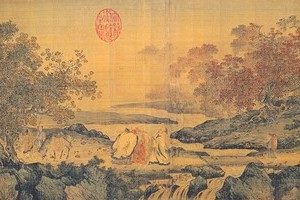


My life as Tao – in-between-er's diaries
 3.0.01
3.0.01 
The art of paradox, contradiction and opposites
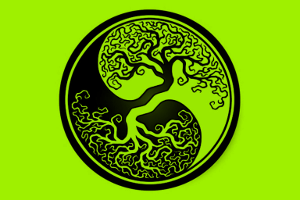
Tao is balance.
Tao is complements.
Tao is opposites.
Tao is contradiction.
Tao is paradox.
Some cultures (and esothericists) believe that life unfolds in cycles, each one focused on different area of development (chakra): starting wirth nurture, skills, processing experience, connecting with people, wisdom, intuition, relationship to divine. Twelve year cycles nicely correspond to the Chinese astrology - for those who don't believe in it can understand it as an arbitrary number, large enough to signify important shifts in consciousness, perception of ones relationship to the world external to him, expectations, levels of engagement, filters.
Chapter 1: Going forward – me & tao as a story:
First cycle (0-12): Roots, Fight or Flight, Basic Needs
I was born in a countryside and raised in town,
living mentally trapped in between these two contrasting environments,
which both felt familiar and alien,
home and not home.
My family comes from rural and small-town communities where anxiously mutually supervised religiosity and superficial materialist focus intertwined. Men "in charge" nominally, by tradition – but as lazy as self-important, "manly" and useless, incapable as husbands and fathers but "indispensable", macho but infantile, kings of the castles that they did not build or maintain. Women in charge of practical life, running the houses, subdued in their role, but dominating through words and work.
The first value systems came from my parents (those worshiped male and female role models!). A rather secular pragmatic unscrupulous materialist constantly picking fight with ascetic and authoritarian religious fundamentalist. Not only as a couple, but each one on their own embodied several paradoxes. Passive aggressive pacifist, brutal lover of nature, self-centered hedonist always anxiously watching out to conform to the surrounding lifestyles. A rebel totally dependent on the manuals. I was the trophy of this domestic culture war – that I had no say in.
Thanks to or despite navigating through this mess, my first success occurred: a hopeless solitaire turned social creature. Throughout two dozen years I was handed from one old-school institution to another, "work hard to be accepted to the next stage", "fun will come later, now you have to perform". Anxiously trying to please (everyone), comply (with everything) and conform (to anything). Ironically, up until my sexual identity emerged in quite a discord with the world around me.
Aside of disrupted conformism and questioning of all the norms and traditions of the society (and in the same time wistfully acknowledging the warm fuzzy feeling of "fixed point in the universe" that they usually provide) the internal recognition of my sexuality happened quite smoothly. My sexuality was a matter of fact for me while the world around was me was in dissonant misconception – not the other way around. Though for a long time I felt stuck in between two worlds – as unsatisfied and lonely gay among straight peers (missing tenderness, emotionality, out-of-the-box perspectives) as well as post-straight unfitting and unfit for full-blooded gay community, insufficient in many mainstream gay ways (not enough urban, refined, consumerist, individualist). A unicorn in the pub, a nerd at the disco.
I was born to experience a society during the change of the systems and ideologies. Seeing the roots of their popularity, the curse of the attitudes they formed, the damage they caused. For most of my life my environment has been mentally split in between westward and eastward aspirations, as much as left-right dynamics, conservative-liberal inclinations, religiosity and secularism, worshiping and distrusting principles. My family and friends were rich in examples from both sides. Country of my origin is not that horrible place to live as some others, neither as pleasant as some others. Intriguing and depressing, hospitable and unwelcoming, lifelessly pretty and sometimes fascinating in its ugly bits. A bit modern a bit backwards, a bit curious and a bit intolerant, a bit active and a bit resigned in its traditional ways.
Second cycle (12-24): Nutrition, Desires, Creativity
Thanks to my upbringing, I abandoned religions, becoming superstitious secularist - a believer non-believer – and felt wind-blown at the whim of malevolent Coincidence.
By work of this Coincidence, a book called Positive Magic came to me – accidentally in the exact moment when I needed it the most, when I was attentive to its subject, when it could actually improve my life a lot, derail a wagon of self-destructive self-pity – and it challenged a very notion of random coincidence. If you don’t like woo-woo, call it a basic self-help psychology. Wiccan rede: "Do what you will, so long as it harms none." – encompasses any sensible commandment of any known religion and ideology and flies above micromanaging daily life (eat with this hand, pray this many times, don’t eat this food). The ethos of Wicca was to stop being passive power-less blame-thrower, take ownership of my life, abandon fixed ideas about the narrow possibilities how to resolve situations, do not hold myself down in negative imagination, think of balance of ones own good and the common good, ... and it revived my spiritual self, in contrast with previous materialism.
To make things funny and challenge the perfect idea, just shortly after putting positive thinking in practice (getting out of mud) I was introduced to the archetypal psychology by Thomas Moore and James Hillman. They provided the opposite perspective: Instead of taking reins of life heroically, fixing things, pushing my dreams through - it suggested to relax, observe, receive things that life brings on its own, make space for divine intervention beyond my control, accept random distortions that allow learning and life-story to happen actually. Get over lifeless happiness and welcome real and complete palette of situations and motions – including depression, sadness, anxiety, fear, dependence – whatever one puts on the dark side. Walking the unpredictable life’s road, the daimon can speak and one’s essence can reveal itself.
It took quite some time to harmonize these two spiritual schools of "being in charge" and "being surprised". Push and receive. Proceed and wait. Move and be moved. Hearing the calling of the spirit but also submitting to the soul’s weird needs. As I navigated through it, many more paradoxes and contradiction invaded my awareness. Comically - at that exact time I started to read Tao Te Ching for the first time – which felt resonant in light of this first-hand experience of a bit too many contradictions and paradoxes, a fitting commentary, something I deeply knew, rather than a "new information to learn" or a "teaching to follow".
I studied in quite rationalist, logical, technical schools – but with more humanist and creative inclinations – from languages through film to spirituality. To this day I dance to the dissonant tune of these domains. Ironically, I was one of the best students at school that I disliked perhaps the most. The dissonance of the skills and interests, safety and dreaming.
During that time, by not being able to say "no" rather than by choice or liking, my circle of friends expanded rapidly. More people around, the more lonely I felt. The quantity did not match quality – most of those relationships did not feel enabling, I found myself expected to play given roles, not seen and welcome with my genuine unique self. So as soon as I achieved my dream of multitude of friends, I ran away from it...
Third cycle (24-36): Digestion, Ambition, Sensitivity
Frustrated by empty life and being obsessed with stories, I set out on a journey to butterfly-chase them. With a result of feeling stuck and story-less even more – despite or thanks to the exotic settings. Searching for conviviality and genuine human connections (not enacting the given roles), I experienced solitude and deep loneliness. Starting as an eager multiculturalist, fascinated by oriental cultures (and religions) – a reverse from usual traveler’s process happened inside of me: I have become disenchanted, less tolerant, less liberal or perhaps less open in one-sided absolutist sense. I grasped the natural concept of borders and my cultural borderlines, I rediscovered notion of home. In far corners of the world I have become fascinated by the culture and identity of my origins. I got into bitter disagreement with one-sidedness of my "eager & opinionated young man" stances.
As a post-communist society of Eastern Europe dug itself out of shame, from wide-eyed obsession with anything western, from tasteless gray and blue euro-fashion - and reinvented its sense of pride (though rather vain one) and started to worship items of its natural and cultural heritage in a rather superficial nationalist way - ironically I am feeling out of line and alien in it again, craving for more international standards.
I got rich first time in my life – and did not know what to do with it. I could travel the way I wanted, finally – but I rather stayed at home, writing. First time in my life (after 25 years) liberated from the hands of institutions, being on my own, for myself. Although everyone around me, family and friends, eagerly spoiled the "vacation" by pushing and pulling me back into the machine. Out of habit, out of fear, out of care. "Thank you."
Unsatisfied by materialist examples around me, I discovered more and more spirituality, though not in its anti-carnal anti-sexual anti-material forms. I don’t refuse material world, I don’t dislike body, I don’t dream of Nirvana or Heaven, I don’t want to become a spiritual being, nor live in higher vibrations. I find living in the body meaningful, the point of the game - with all the senses, that beautiful physical playground we are born into. Yes, it is not children-safe playground, definitely. I cherish the spirituality that is embodied, that means living mundane everyday situations and activities with a bit of added value, with awareness and sense of sacred and transcendent (or at least of unexpected interconnections). Not a spirituality that redeems you out and away, but takes you more in life.
The more I socialize with spiritually-eager people, the more I crave for good old scientific principles, or a spirituality that does not deny physical reality and physics. A belief that welcomes The Holy Doubt, so that it keeps sanity, so that it can change, restructure, reinvent itself. A woo-woo that is playful, not-so-serious and thus more genuine and serving the soul.
I am not follower of religions, nor its last instance – the atheism – whose "followers" can be quite zealous and righteous fundamentalists sometimes. Comparable in "erroneous-less-ness" to the lunaticism of many woo-woo-ers.
By natural flow of events and experience, I shift from left (compassion with oppressed and less lucky) to some good-old tenets of markets (incentive, efficiency, anti-bureaucracy, common sense, self-reinvention) and get kind-of-friendly with Big Bad Capitalism – I unlearn naming isms so eagerly - I see naturally developed hybrid of a system (comprising economic and political aspects of both right and left) that just reflects the best and worst ambitions of its flawed human players. More I peeked curiously out of "Babylon" or "Matrix", more practical and pragmatic sympathies I find for it. Dear esotherical people, this what we have - is what you have (co-created), you are not perhaps ready for anything better.
I am not blue or red, I am not socialist or capitalist. I am not green or gray - I am for balance between preserving the ecosystem and not stopping the scientific/technological advancement. I enjoy bliss of being unplugged, but I don’t see the electronic gadgets as evil. I am not an addict to them either. I appreciate quiet life in connections with nature as much as I love crowds and ideas and culture generated within towns. I appreciate misfits, queers, provocateurs, innovators, liberal art(ist)s – as much as I understand need for stability, continuity, reference points - whatever is called "conservative values" today. Borrowing a phrase: Someone needs to generate the ideas (liberals) and someone needs to implement them (conservatives). I am not multiculturalist, I am not nationalist. I salute to sane openness, but know also that borderlines are not "the evil thing" (even my material body has a border – the skin – where I end and the rest of the world starts). I am welcoming, but cautious and at times suspicious.
I finally embrace my vanilla and kinky side – and live both – yes, in one body. I am oscillating somewhere in between dominant and submissive or s/m dichotomies, not feeling like being "just this or that". I see how this sexual preference reflects many other situations in life that we don’t consider sexual by context. My dirty fantasy knows barely any limits - and still I am a lazy cuddle addict. And yes, I have a heart for nature, ecology, environmentalism, less consumption, less footprint, slow life – but in the same time I acknowledge my inclination towards fetishes (which are consumerist and non-vegan 😉 ). But instead of blindly following them I try to observe and learn from that fetish dynamics (not to fix it, change it, resolve it).
Emotionally - I start to value my detached/equanimous self (I won’t cry or feel shattered for what many "humans" would) as much as my irredeemable romantic and for some people even oversensitive side. In a world split among those "into sex" and "into relationship", I don’t choose either side. I have no issues with casual sex (no moralist inhibitions), but still require presence of love even in quickies. I approve of every consensual form of sexuality and in the same time I can be rather cuddlesome and asexual. I feel deeply polyamorous, but not stopping to dream occasional monogamous fantasies, still having respect for heart-felt (not copied) commitments.
Too spiritual for gay mainstream and too gay for mainstream religions, I had to search for my kind – and found Radical Faeries – a minority within minority – and their inspiring myths: like two-spirits. I resonate with the concept of in-betweener – in traditional role: a bridge between male and female, mediator between material and spiritual world – and in my own personal experience as well: as a person discovering paradoxes and contradictions of Tao.
In faerie sanctuary, I don’t see myself as a purely practical faerie, nor a hedonistic one. I dread the moment when one energy – rationalist sanity or untamed craziness - prevails. I appreciate this community is not a sect, it invites individual selves as much as it creates social space. It welcomes joy as much as tears, sadness, anxiety, frustration, resignation, pain – all the palette of human feelings. It offers sense of belonging (for some it is home) and invites exploring my unique self in the same time (for some it is a laboratory).
Fourth cycle (36+): Heart?
One would say, this is it... Though, more and more I feel that politically or rather ideologically I don’t fit the faerie profile. As much as I question and challenge normality and conformism these days (in my own ways), I also can’t stand activists yelling slogans and derisive labels, who want here and now a change bigger in size than their education and insight covers. I try not to carry spiritual or strictly-left-wing superstitions against corporations, capitalism, technology... or simply "Them". I indulge in sharing feelings, but I do not want to frown upon thoughts, ideas, opinions, head-space either. I am not into far-too-serious but empty spirituality. I am not happy about practicality killing off creative spirit, or the craziness overriding continuity. I get frustrated by power-games in so-called leader-less space.
I can’t take sides. I’d rather see the balance. For some, the middle ground, the balance, the center equals grey average, mediocrity, mainstream. For me, I find standing up for one sides far too easy ... but that deeply uncomfortable and lonely in-between feels like the most radical place to be. Unwanted home.
Despite being frustrated by storylessness of my life, I constantly revisit its weird story.
I realized that communicating with others I often assume that certain words will instantly ring the bell, in approximately same width and layers of meaning as I grasp them. Though the flavor of each one is clearly a cumulative result of thousands of days of my own life experience. What follows here is a couple of concepts that I resonate with and I recognize them as the propulsion engine of my efforts in life. Hearing them induces belly-butterflies, something of my very essence gets revealed.
Tao is the first one.
Chapter 2. Going backwards – tao as a way (not) to act
If I said: "I am a taoist.", what would be the usual responses?
- And I am not.
- Ok, so what?
- Another one...
- I believe in something else.
- Your choice.
- Again, the "-isms".
- Next!
Though the truth is, I am not a taoist. I don’t worship Tao, I don’t follow Lao Zi. Particularly I resist the "-ism" part of it. I just often experience the resonance with ideas very close to Tao. Throughout my whole life (now the birthday drama queen part) I keep returning towards this pattern and I rediscover more layers and faces of it. It’s so essential topic for me that barely I can explain anything I experience or anything that matters to me without a reference towards it. Without notion of it, each statement is a kind of misinterpretation of myself.
I never had to self-impose Tao as a foreign concept, I did not have to learn it, I did not have to adopt it (or "culturally appropriate" it). It just is, regardless of my attitude. I recognized the teasing dance of the opposites as a pattern in my life quite early. Just later – after reading Tao Te Ching – I have borrowed this convenient word that was closest to my experience. It was rather funny encounter - because I did not find anything unfamiliar in the book. It was a bit like reading myself. Weird. Though I still resist calling myself tao-ist. I guess my peculiar self is just wired to see it wherever I look. Though more and more I realize that the communal capability for this particular perspective at life is missing a lot. Taking the "right side" and winning the battle seems more appreciated nowadays.
I can't explain my relationship to this phenomenon without employing its very nature:
Tao is balance. Tao is complements. Tao is opposites. Tao is contradiction. Tao is paradox.
Tao is the nature of things, Te is the way ... or rather "wei wu wei" (doing by not doing).
While some religions may have myths or ethics in common, there is a perceptible eastern-western split. Even the pagan pantheons and the monotheist exclusiveness appear in irreconcilable opposition too. (Or perhaps not? One depicts diversity of creation, the other voices its unity.) Along comes the question of escape to spiritual realms, abandoning "bad, sinful, imperfect, burdening, prone-to-suffering" material world. Material world that allows us to play, to experience, to reflect, to dream, to aspire, to ask, to seek. It complements spirit in perfect harmony. It allows human to distinguish what actually is spiritual and also to be able to experience spirituality at all. At the end, the epic clash between science (questioning) and religion (belief) arises. Evolution/coincidence/nature versus supreme being/creator/judge.
As a person with particular sensitivity towards the opposites/contradictions can tell – there’s still some complementarity to discover. For me, tao embraces it all. The reference point where all that exists converges. It does not judge, it does not command how to live, it offers observation of the nature of things (science) and maps the living in accord or discord with it (faith). It does not punish or reward, but does not leave one in void either, it offers awareness, insight and deeper involvement in everyday life.
Tracing the tree of opposites back, one arrives as far as he allows himself to. The mankind, the nature, the planet, the universe, the creation, the big-bang. They all connect at one point of mystery. So - traveling back to the point of all-things-coming-to-an-existence ... and then back to the colorful complexity of here and now ... where’s the handbook? Where’s the commandments? What to do with life? Ha! Silence. And now, live your life! ... You have everything you need to know to be able to live, without The Book. Without knowing how it started or how it will end. Because that’s not your time-line. Tao is not a judging God, Tao is a playful invitation to life.
Tao - in my particular embodiment - means a life of an observer. I’d prefer being a bit more of a participant sometimes, being "in the drama", belonging. Achieving balance even in this respect.
Though as an observer, one does not incline to take the sides: "Are you with us or against us? Which team you are playing for? Which trench you shoot from? Which camp you stand for? Which dress you are wearing – black or white, blue or red, green on gray? Which team will win? What is your opinion? Do you agree or disagree? Yes or no? Good or bad?"
Still, I don’t see myself as stubborn exhibitionist who will insist on right the opposite of what you say – awareness of balance just comes by as my nature. I can’t really "preach balance", I can note its presence, referring to my experience. There’s also a reference towards my personal interpretation of two-spirit role – the in-between-er, the mediator, the teacher, the shaman, the storyteller, the knowledge-preserver. That’s my queer essence, inspiration of living in the stright warfield, in between trenches. Men-women, straight-gay, liberal-conservative, materialist-spiritual, secular-religious, right-left, practical-hedonist, sensual-intellectual, mind-heart, sexual-asexual, submissive-controlling, detached-engaged, talkative-listening, ...
What would taoist master’s say?
Read Tao of Pooh and Te of Piglet! :)
We can talk Vinegar Tasters next time.
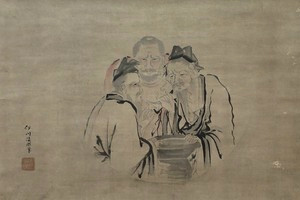
Three wise man of Chinese culture taste vinegar
Confucius says: It's sour.
Buddha says: It's bitter.
Lao Zi says: It's vinegar.
(Credits): Wikipedia - Kanō Isen'in
Chapter 3.: The intuitive wisdom was expressed by many minds exploring independently
One of the scientific confirmations to the relevance of grasping the contradictions - was given by Viktor E. Frankl (founder of logotherapy, a form of existential analysis - the Third Viennese School of Psychotherapy) in his famous booklet Man's Search for Meaning. Surviving the experience of horrors of the concentration camp provided an inspiration in his later psychotherapist praxis. Frankl describes a method of "paradoxical intention" - trying to achieve what we want by acting in the opposite way.
"By [anticipatory anxiety] I mean that the patient reacts to an event with a fearful expectation of its recurrence. However, fear tends to make happen precisely that which one fears, and so does anticipatory anxiety. Thus a vicious circle is established. A symptom evokes a phobia and the phobia provokes the symptom. The recurrence of the symptom then reinforces the phobia. The patient is caught in a cocoon. […] [Obsessive-compulsives] fear the potential effects or the potential cause of the strange thoughts. The phobic pattern of flight from fear is paralleled by the obsessive-compulsive pattern. Obsessive-compulsive neurotics also display fear. But theirs is not 'fear of fear' but rather fear of themselves, and their response is to fight against obsessions and compulsions. But the more the patients fight, the stronger their symptoms become. In other words, alongside the circle formation built up by anticipatory anxiety in phobic cases, there is another feedback mechanism which we encounter in the obsessive-compulsive neurotic. Pressure induces counter-pressure, and counter-pressure, in turn, increases pressure. If one succeeds in making the patient stop fighting his obsessions and compulsions -- and this may well be accomplished by paradoxical intention -- these symptoms soon diminish and finally atrophy."
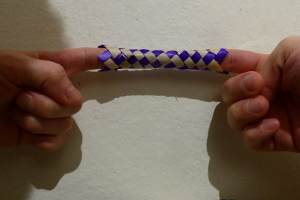
Illustration of paradoxical intention
Chinese finger trap toy: Getting in is easy...
... but if you want your fingers OUT, you must move them IN.
Less rational and more poetic take on paradox comes from Douglas Adam's science-fiction "trilogy in five parts": The Hitchhiker's Guide To Galaxy. The main character, at a whim of space-time situation, has an opportunity to study guidelines to flying.
"There is an art, it says, or rather, a knack to flying. The knack lies in learning how to throw yourself at the ground and miss. Pick a nice day, [The Hitchhiker's Guide to the Galaxy] suggests, and try it.
The first part is easy. All it requires is simply the ability to throw yourself forward with all your weight, and the willingness not to mind that it's going to hurt.
That is, it's going to hurt if you fail to miss the ground. Most people fail to miss the ground, and if they are really trying properly, the likelihood is that they will fail to miss it fairly hard.
Clearly, it is the second part, the missing, which presents the difficulties.
One problem is that you have to miss the ground accidentally. It's no good deliberately intending to miss the ground because you won't. You have to have your attention suddenly distracted by something else when you're halfway there, so that you are no longer thinking about falling, or about the ground, or about how much it's going to hurt if you fail to miss it.
It is notoriously difficult to prize your attention away from these three things during the split second you have at your disposal. Hence most people's failure, and their eventual disillusionment with this exhilarating and spectacular sport.
If, however, you are lucky enough to have your attention momentarily distracted at the crucial moment by, say, a gorgeous pair of legs (tentacles, pseudopodia, according to phyllum and/or personal inclination) or a bomb going off in your vicinty, or by suddenly spotting an extremely rare species of beetle crawling along a nearby twig, then in your astonishment you will miss the ground completely and remain bobbing just a few inches above it in what might seem to be a slightly foolish manner.
This is a moment for superb and delicate concentration. Bob and float, float and bob. Ignore all consideration of your own weight simply let yourself waft higher. Do not listen to what anybody says to you at this point because they are unlikely to say anything helpful. They are most likely to say something along the lines of "Good God, you can't possibly be flying!" It is vitally important not to believe them or they will suddenly be right.
Waft higher and higher. Try a few swoops, gentle ones at first, then drift above the treetops breathing regularly.
DO NOT WAVE AT ANYBODY.
When you have done this a few times you will find the moment of distraction rapidly easier and easier to achieve.
You will then learn all sorts of things about how to control your flight, your speed, your maneuverability, and the trick usually lies in not thinking too hard about whatever you want to do, but just allowing it to happen as if it were going to anyway.
You will also learn about how to land properly, which is something you will almost certainly screw up, and screw up badly, on your first attempt.
There are private clubs you can join which help you achieve the all-important moment of distraction. They hire people with surprising bodies or opinions to leap out from behind bushes and exhibit and/or explain them at the critical moments. Few genuine hitchhikers will be able to afford to join these clubs, but some may be able to get temporary employment at them. "
The method can be tested in real life, almost on anything except the "real flying". It applies to any human effort - that needs counterbalancing with a bit of distraction, for the sake of succeeding at the end. Whether it is the annoying yoga position, succeeding in a complex project, getting an attention, opening the rusty can, or attracting the cat in the well known example of a hedonism paradox The trick of relaxing, not pushing too much, not being that desperate. Allowing instead of forcing. Making the desired objective rather a side-effect of another endeavor - that we are pursuing with focus and joy. Desire to loose or gain weight and pushing oneself in the gym - is a sure invitation to get frustrated and fail. The best way to get in shape is not wanting to look "in shape" but to practice movement that is enjoyable, satisfying and motivating in its own sake. Healthy and pretty body being just one of the natural consequences. Flying is a symbol of bliss, the skill, the achievement.
